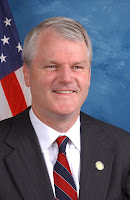
Yesterday I spend the day manning a table at the National Air & Space Museum as a "Lunar Expert" to help them celebrate the 40th anniversary of the day that Apollo 11 launched. According to the little counter they gave me, over 800 people stopped by my booth to learn about "Moon dust". I had a bunch of images of soil grains from my own research, plus some lunar soil simulants and a handful of 3D analglyphs donated from a colleague at Lehigh (which were clearly the hit, man people really love those 3D images). I love doing these public outreach things, but I have to say I am always amazed by both the sophistication and the sheer ignorance of some of the questions I get asked.
A few of the things I was asked yesterday:
Is this real Moon dust? - referring to the two jars of soil simulants I brought (yeah, I'm sure NASA would have no problem with me leaving half a pound of lunar soil on an table in the middle of a museum full of people).
Was Night at the Museum II filmed here? - turns out it was, I didn't know that at the time though, and also,
I'm not an information booth. There was also a question about the new Transformers movie, although I'm pretty sure that one was not filmed in the museum.
Is Moon dust radioactive? - I get this question from time to time and I don't understand where that comes from or why people would think that.
Have we figured out any good uses for Moon dust yet? - There were at least a dozen people who asked me some version of this question, because apparently there is no reason to go back to the Moon unless we can mine it for something. I tried to turn their question into a discussion of in situ resource utilization and explain how the soil contains all the elements we need to survive and make rocket fuel, so if we can figure out how to extract it we can "live off the land," I think that worked with about half the question askers, the others just seemed disappointed, apparently "oxygen" was not the answer they were looking for.
Did you collect these samples yourself? - I swear, I'm not making this up, there were two people, two, adults, at separate times, that genuinely thought I might have gone to the Moon myself and brought back my soil. One seamed really taken aback when I said that no one had been to the Moon in my lifetime, the other was like, "oh yeah, that's right". Wow, it's interactions like that that really scare the bejeezus out of me. How do these people function in normal life? It reminds me of a hairstylist I once had that thought the Sun and the Moon were the same thing, it just got dimmer at night (true story).
Not to worry though, for every left field question, there were plenty of bright and curious types of all ages with good questions. There was one guy who stayed for like half an hour just firing one question after the other, he was awesome, he kept apologizing to the gathering crowd for monopolizing me and they were like, no, we're learning so much from your questions, keep going. And the kid who was allergic to dust and wanted to know if he would be allergic to Moon dust too - that's a great question. (For the record, probably not, most terrestrial dust allergies are due to dust mites, which lunar soil doesn't have, but at least two people during Apollo one astronaut and one flight surgeon, experienced "hayfever-like" symptoms after being exposed to lunar dust.)
All in all, it was a good time. The museum was crowded, people mostly seemed interested and engaged. This was the first "Moon day" the museum has done, they normally do a "Mars day" but made an exception this year for the anniversary. I hope they don't wait until the next bit anniversary to do it again. I mean, Mars is cool and all, but come on, give the Moon some love too!






